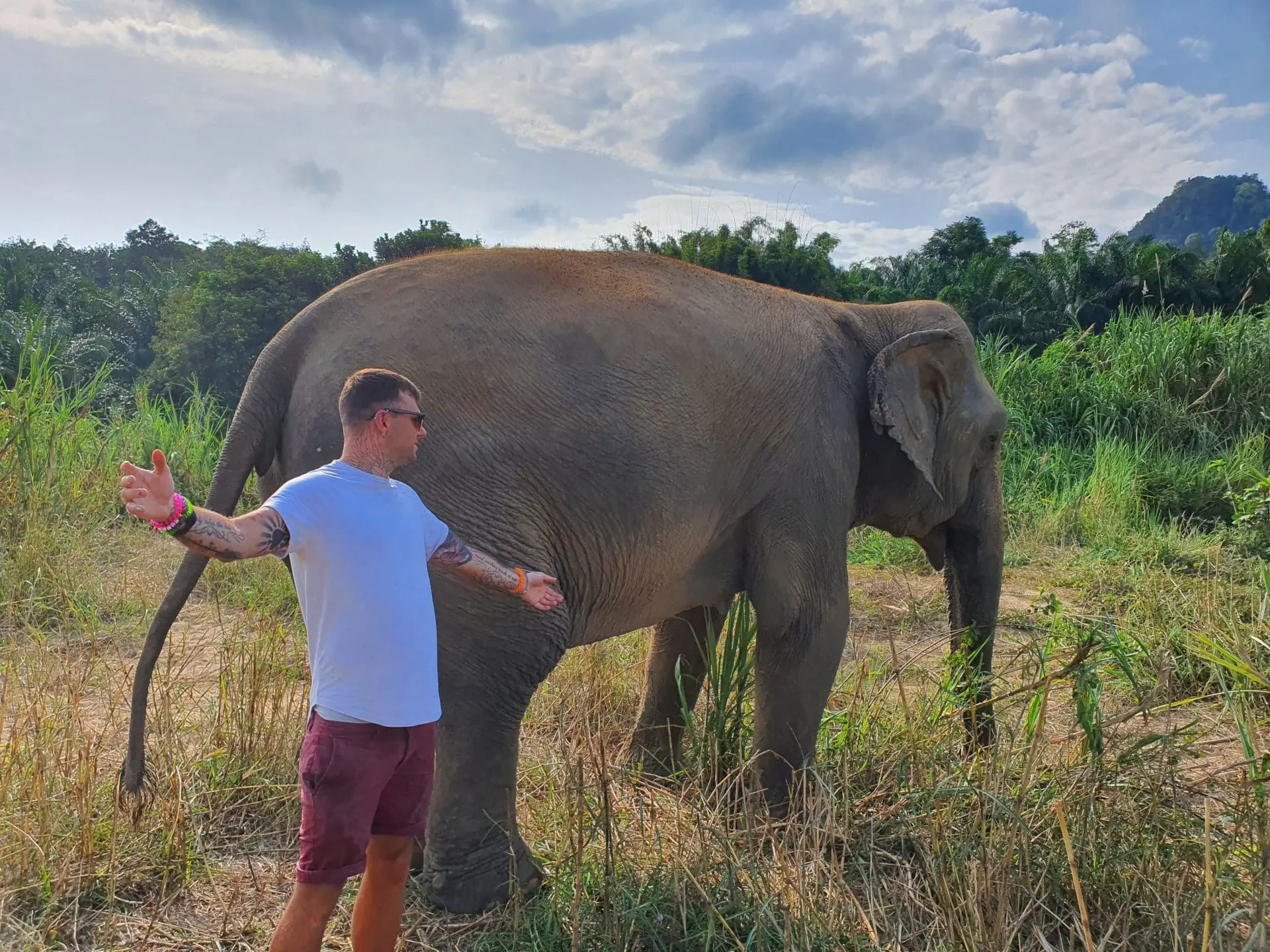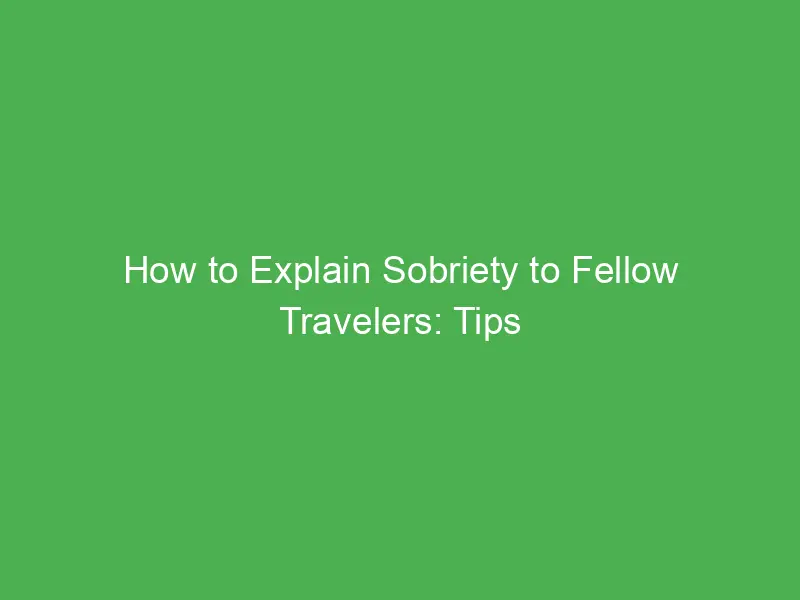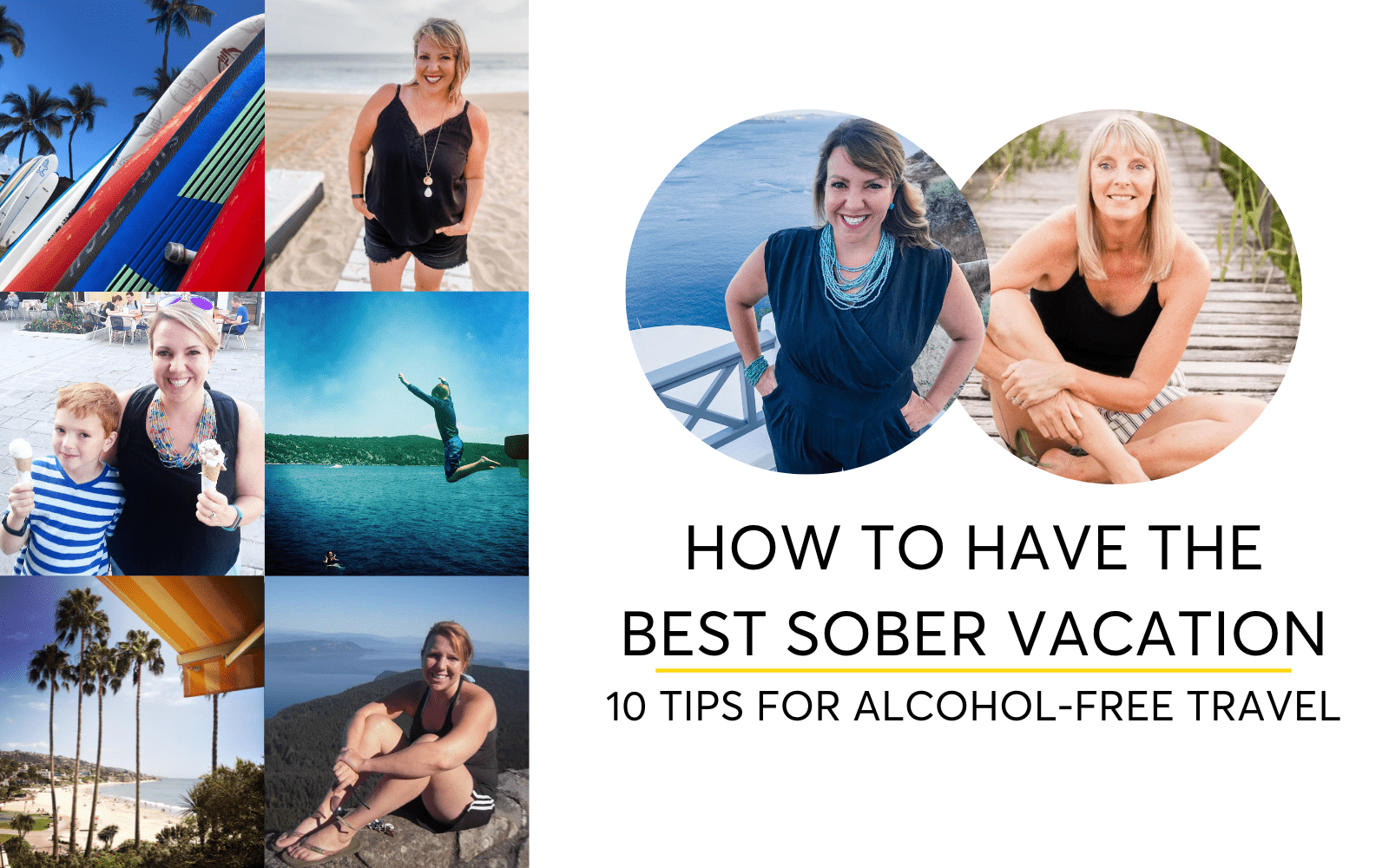Traveling opens up a world of new experiences but it often comes with social expectations—especially when it comes to drinking. I’ve found that navigating conversations about sobriety with fellow travelers can feel tricky. Sometimes it’s a casual question over dinner other times it’s a well-meaning offer at a group event.
I know I’m not alone in wanting to feel comfortable and confident about my choices. Explaining sobriety doesn’t have to be awkward or complicated. With a little preparation and the right mindset I can share my story honestly and still connect with others on the road.
Understanding the Importance of Explaining Sobriety While Traveling
Explaining sobriety to fellow travelers shapes social interactions. Many travel groups, like backpackers or group tour participants, plan common activities around alcohol-centric venues such as bars or hosted dinners. When I share my reasons for abstaining, I set clear expectations about my choices and abilities to participate.
Addressing sobriety early in a travel experience prevents misunderstandings or repeated offers. Consistently stating my boundaries helps others support my decisions, which contributes to a more inclusive group dynamic.
Sharing my reasons for sobriety can also normalize different lifestyle choices in diverse travel environments. When people encounter travelers like me who opt out of alcohol, they see examples that challenge social drinking norms established in certain countries or settings. This visibility encourages acceptance and respect for varied backstories and preferences.
Being candid about sobriety helps build trust among travel companions. Open discussions demonstrate respect for the group, as travelers often rely on mutual understanding for safety and enjoyment during trips. If someone knows about my sobriety from the outset, they’re less likely to pressure or question my decisions as the journey continues.
Preparing for Conversations About Sobriety
Preparing for conversations about sobriety supports clear communication and minimizes discomfort during travel. I plan these discussions in advance to shape my interactions and strengthen group dynamics.
Identifying Your Comfort Level
Identifying my comfort level with sharing about sobriety clarifies my boundaries. I determine whether I’m open to discussing my reasons or prefer to keep explanations brief. Reflecting on previous conversations helps me spot what felt natural or stressful, so I can adjust my responses accordingly. I choose simple phrases for quick answers or prepare more details if I’m ready for deeper talks.
Choosing the Right Time and Place
Choosing the right time and place to discuss sobriety increases the likelihood of a positive outcome. I look for calm moments—such as during group introductions or before a social event—to mention my sobriety, not while plans are unfolding or alcohol is being served. Selecting a setting where I feel safe and supported, like a small group or one-on-one conversation, lets me maintain control and set an open tone for future travel experiences.
Strategies for Explaining Sobriety to Fellow Travelers
Explaining sobriety while traveling shapes group expectations and sets a precedent for honest interactions. I use a clear, tailored approach that matches the travel context and group dynamic.
Being Honest and Direct
I state my sobriety right away, often using phrases like “I don’t drink” or “I’m sober.” I focus on keeping my explanation brief and unambiguous if the moment feels casual, like before a group activity begins. Prompt directness removes confusion or speculation about my choices and helps me feel confident in group settings. If someone asks for more details, I decide what personal information I’m comfortable sharing, always prioritizing my boundaries.
Using Humor or Lightheartedness
I sometimes incorporate humor to ease potential tension around my sobriety. For example, I’ll say, “I’m the designated storyteller tonight” or “Someone’s got to remember what happens here.” Lighthearted comments reduce awkwardness and signal that my sobriety doesn’t limit my social participation. This approach works best in informal travel groups or early in new conversations, where it encourages a relaxed, friendly atmosphere.
Sharing Personal Motivations
I share brief reasons for my sobriety, tailored to the context. For instance, I might mention, “I feel healthier this way” or “I travel better when I’m sober,” choosing motivations that align with the group’s interests. If someone seems genuinely interested, I’ll expand with more personal experiences, measuring each response by the level of openness in the group. Sharing motivations creates understanding, and when appropriate, it can inspire others to respect diverse lifestyle choices in travel settings.
Dealing With Reactions and Questions
Travelers often react to my sobriety with curiosity, support, or surprise. I encounter a range of questions, so I stay ready to respond calmly and confidently.
Handling Curiosity and Support
Many fellow travelers express genuine interest in my decision. I answer questions honestly and keep details brief, such as, “I feel healthier and enjoy trips more sober.” I highlight positive aspects, like improved energy and clarity, using specific examples. When I notice supportive comments or others joining me in non-alcoholic choices, I thank them and invite collaborative experiences. I recommend local alcohol-free drinks or suggest activities that don’t revolve around bars to build connection.
Addressing Insensitivity or Pressure
Sometimes, travelers make dismissive comments or question my decision. I stay firm and non-confrontational, repeating my boundaries: “That’s just what works best for me.” If someone pressures me to drink, I redirect with humor or shift the conversation to shared travel interests. When jokes or teasing arise, I acknowledge the remark, then return focus to the group’s plans. When persistent, I use concise responses and minimize further discussion. I maintain my boundaries regardless of group opinions, ensuring a comfortable environment for myself and others who may share my choice.
Tips for Maintaining Sobriety in Group Travel Settings
Maintaining sobriety while traveling with groups brings unique challenges, especially in environments where drinking is common. I use specific strategies to protect my well-being and foster a supportive atmosphere.
Setting Boundaries
I state my boundaries early in group settings to avoid confusion later. For example, I let the group know that I don’t drink alcohol and prefer to skip bar-focused activities if drinking’s the main attraction. I suggest alternatives like coffee shops, walking tours, or game nights, which create inclusive options. I keep my explanations clear and consistent, repeating them when needed if someone forgets or pressures me to drink.
Looking for more sober travel inspiration? Find your next adventure on our Homepage.
Finding Supportive Allies
I identify one or two travelers who respect my choices and can help reinforce my boundaries in social situations. I involve my allies by mentioning my sobriety to them privately and asking for their backing during group decisions. I stay close to these supportive individuals during events where alcohol’s present, turning to them for encouragement if I feel uncomfortable or singled out. Examples include trusted friends from previous trips or fellow travelers who express interest in sober activities.
Reaping the Rewards of Traveling Sober: Confidence and Connections
Traveling sober has taught me a lot about communication and self-assurance. I’ve discovered that being upfront about my choices not only sets the tone for my experience but also invites more honest and respectful interactions with fellow travelers.
Staying true to myself while exploring the world has brought unexpected rewards. I’ve found deeper connections and more meaningful adventures by embracing my sobriety and sharing it confidently with others.

Quit drinking on 23 July 2021 after a two-day bender and swapped bars for border crossings and 12-step meetings. Three sober years, 36 countries, 113 travellers (totally dry), fuelled by street food, jelly babies, and a broken Google Maps app. Wandersober is my journal, my SEO lab, and my mission. Featured in GQ, Mirror, Evening Standard, MarketWatch, and more.







